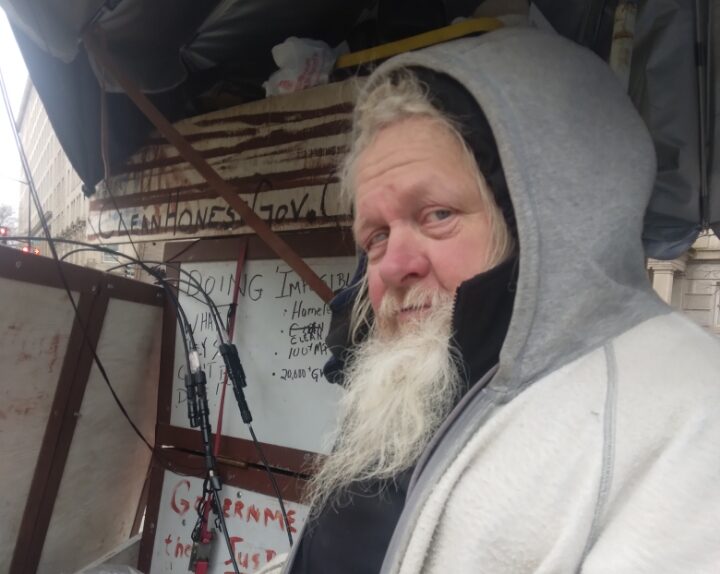Ayanna Pressley’s “The 1 Bus” video aired in 2018, when she was seeking election to the U.S. House. Its message remains relevant.
As the bus travels from wealthy areas to much poorer ones where household median income and life expectancies drop, Pressley says, “It is my fundamental belief that the people closest to the pain should be the closest to the power, driving and informing the policy making.”
Pressley experienced hardships growing up. When her mother lost her job, Pressley left college to help support her family. Now she serves in the U.S. House of Representatives.
We know what happened when people like Pressley didn’t walk the halls of Congress.
A half-century ago, within the lifetimes of many Americans, power was apportioned quite differently on Capitol Hill. White men predominated. Many committee chairmanships in Congress were held by southern Democrats with beliefs rooted in a still-lingering segregationist past, despite recent enactment of federal legislation guaranteeing civil rights and voting rights. In 1967, only six African-Americans served in the U.S. House and Senate.
Reactionary white people dominated the deep South’s state governments.
This imbalance becomes clear in Ellen B. Meacham’s “Delta Epiphany: Robert F. Kennedy In Mississippi,” which recounts the April 1967 trip taken by Senators Joseph Clark (D-Pa.) and Robert F. Kennedy (D-NY) to the Mississippi Delta.
The genesis for the trip came when a young NAACP Legal Defense Fund attorney, Marian Wright, who later took the name Edelman and founded the Children’s Defense Fund, testified before a subcommittee Clark chaired overseeing implementation of the Johnson administration’s War on Poverty. At the time, Wright, a Yale Law School graduate, was one of only five African-American lawyers in the state; two never attended law school.
Wright and others informed the subcommittee that changes fostered by the Johnson administration’s War on Poverty unexpectedly hurt many Mississippi agricultural workers, many of whom suffered displacement by automation.
Many could not afford food stamps, which in many counties replaced the federal government’s “free food” commodity distribution program. (Purchase requirements for food stamps ended in 1977.) Wright told the senators that $12 spent for food stamps brought a family of 6 “seventy-two dollars’ worth of food.” Yet, many poor Mississippians could not afford the $12. Some actually had no or practically no income.
Visiting Jackson for an April 10 field hearing were senators Clark and Kennedy and two others. Dr. A. B. Britton, an African-American physician, testified that an unemployed field hand, his income of $3 a day gone, was unlikely to find work, even through new federal job training programs, because Mississippi employers discriminated based on race. Too young and not disabled, if he remained with his family, they could not qualify for welfare. Finding work up north and sending money home would eliminate the family’s welfare payments, if discovered.
The next day Kennedy and Clark visited Cleveland, Mississippi. They encountered African-American children who lived in sub-standard housing; whose diet often consisted of starches (i.e., bread and molasses). Many children had distended stomachs; legs weakened by rickets. (At that point, Meacham writes Mississippi declined participation in Medicaid.) Their housing and clothing were sub-standard. Unlike the north, where welfare payments helped families, Kennedy noted that in Mississippi, “children, as well as grownups, are suffering.”
Clearly shaken, Kennedy and Clark, upon returning from Mississippi, told an incredulous Secretary of Agriculture Orville Freeman that some people in the state were surviving with “no income.” Subsequent investigations by Agriculture Department nutritionists and The Field Foundation reinforced the finding of the senators. The Field Foundation report insisted it was surprising that, given the “primitive conditions…we were examining American children of the Twentieth Century.”
Kennedy made calls to charities and affluent friends for assistance to the Delta. Getting federal action was much tougher, but the Agriculture Department did revise some guidelines to help impoverished people get food stamps and Congress did appropriate some “emergency” aid that came to the state one year after the Clark-Kennedy tour.
US Rep. Jamie Whitten (D.-Miss.), whose district encompassed much of the Delta and who chaired the House Agriculture Committee’s subcommittee on appropriations, proved unresponsive to the needs of his newly enfranchised African-American constituents but solicitous of his district’s agricultural growers. He and others of Mississippi’s white-dominated political establishment insisted the misery in the Delta was overblown.
However, after Kennedy’s untimely death on June 6, 1968, Sen. George McGovern (D-SD) succeeded in forming the Senate Select Committee on Nutrition, which helped shed light on hunger in America and its underlying causes. Over the next decade, Congress passed legislation ensuring food stamps became more accessible and no longer required purchase.
The fact that Wright Edelman, Kennedy, and Clark worked to counter extreme poverty in the Delta reminds us that making America great starts by electing representatives who do not purposefully blind themselves to the unfair realities of life experienced by lower-income Americans.
Stephen Lilienthal is a freelance writer living in Washington, D.C.







